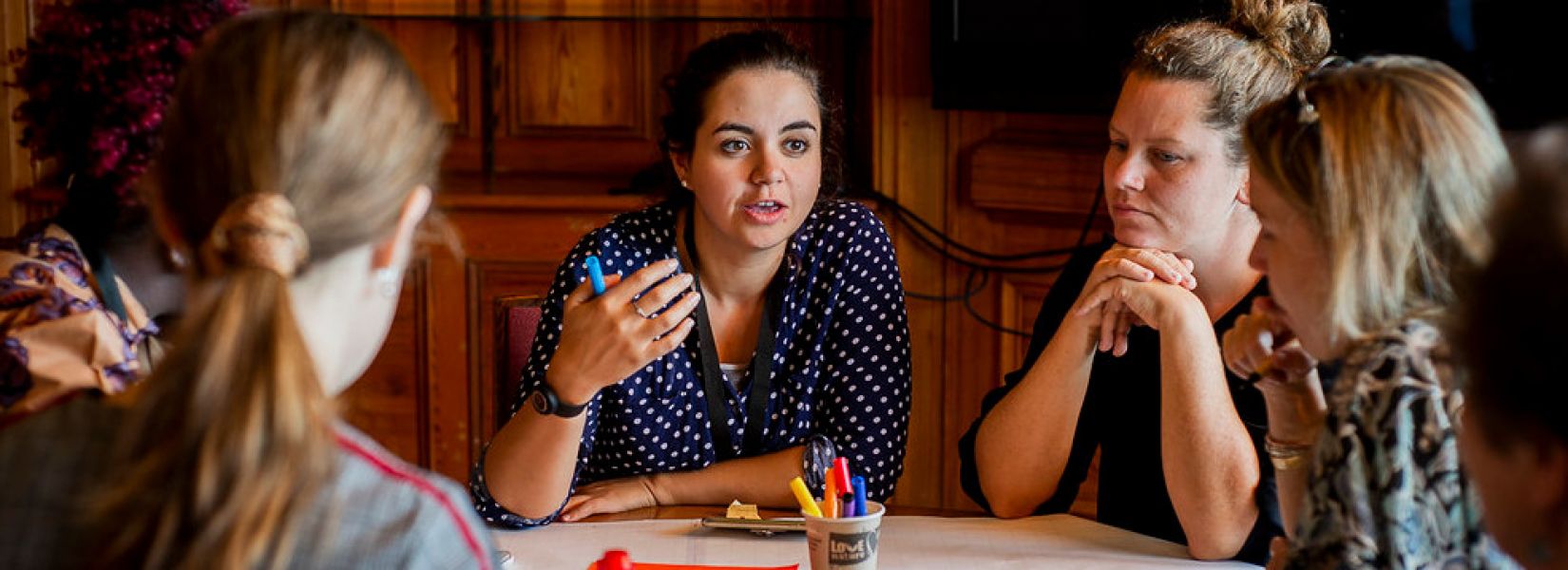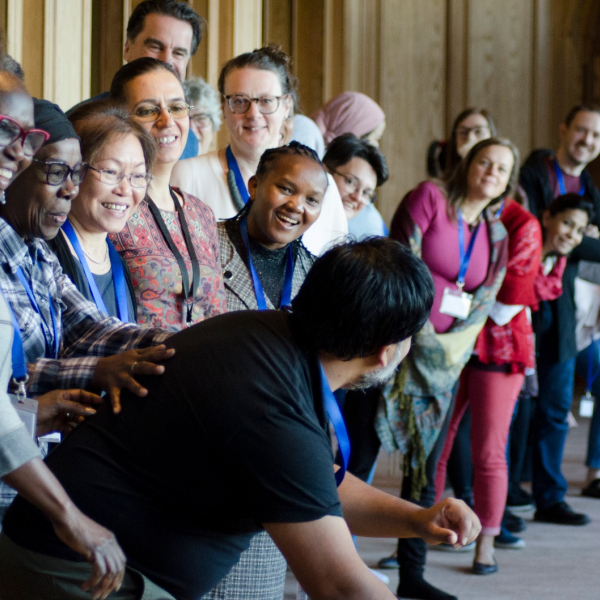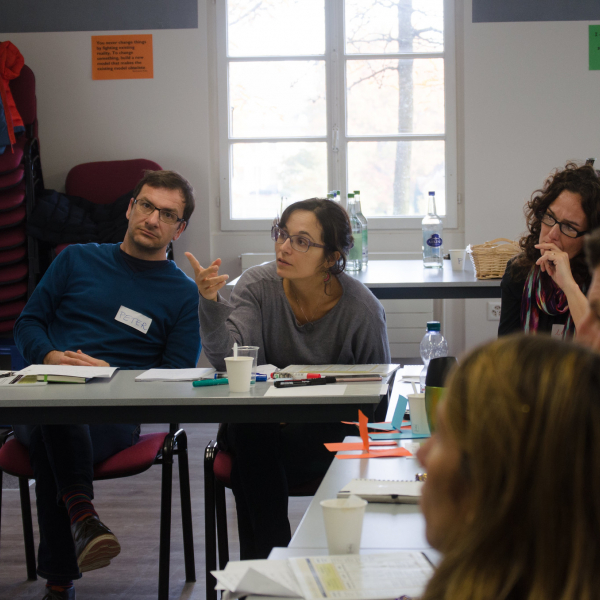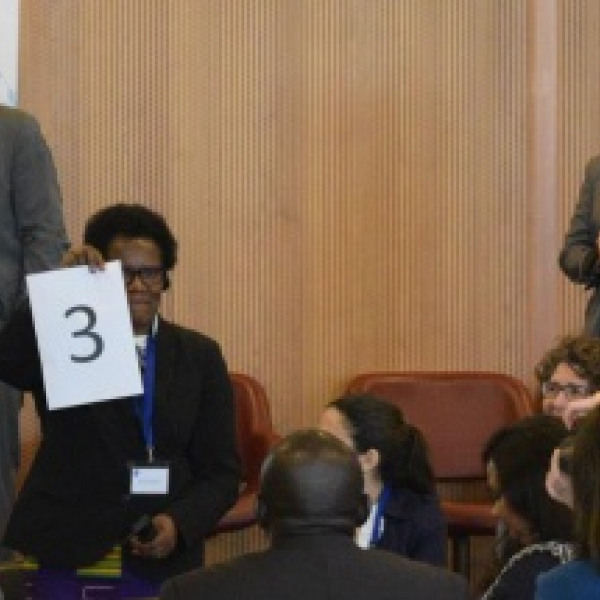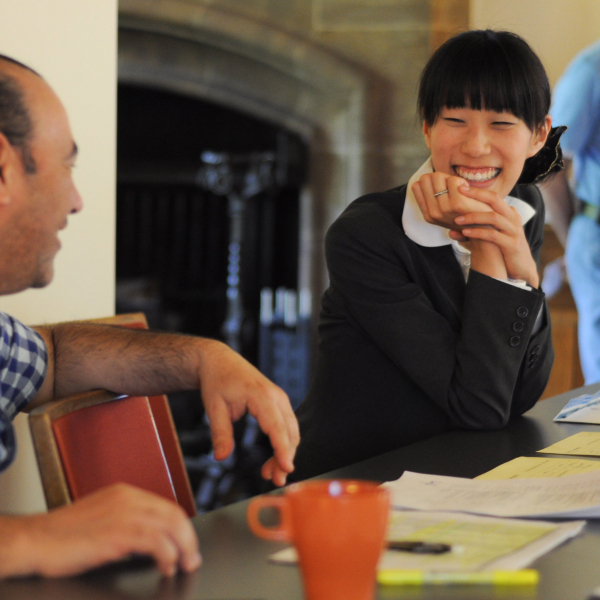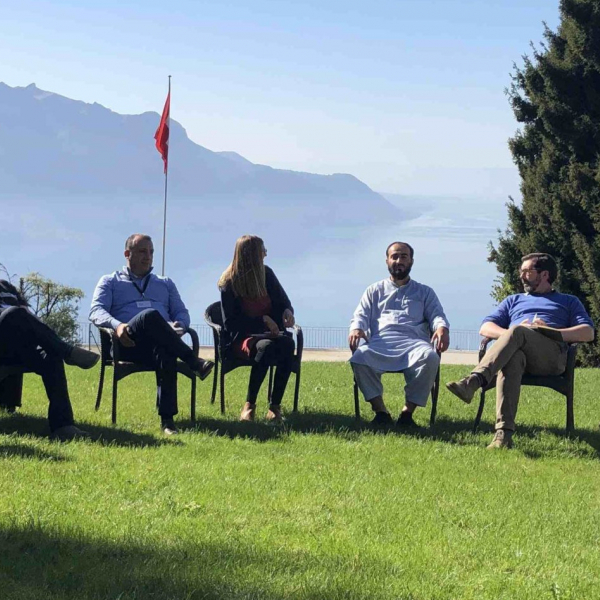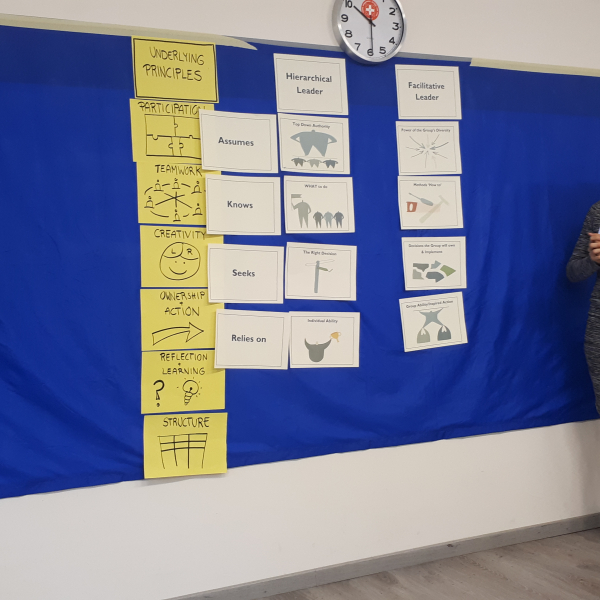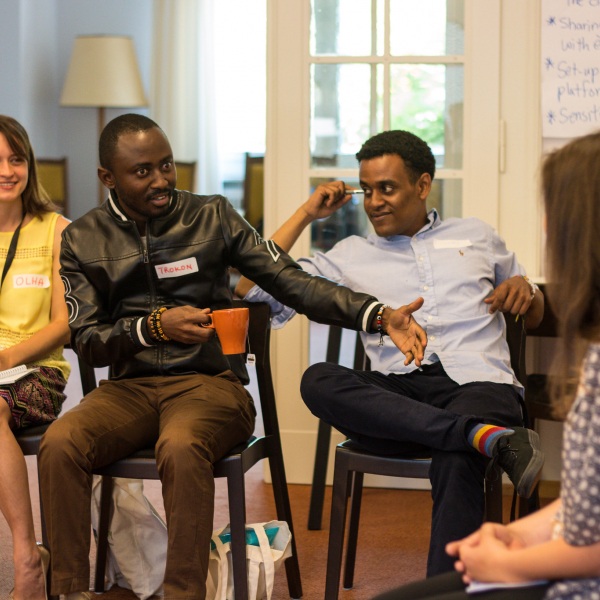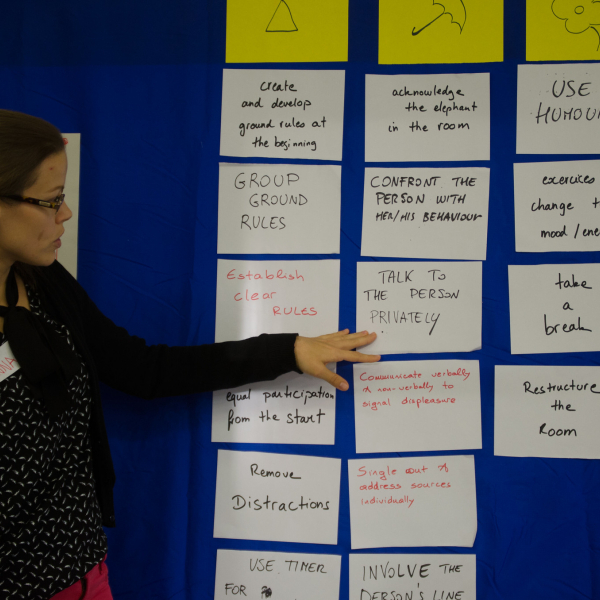10 tips for creating a safe space
By Brigitt Altwegg, Trustbuilding Programme Manager at Initiatives of Change Switzerland
04/09/2019
A safe space is key to dialogue and trustbuilding. Yet I have been at many events which claimed to be safe but where I did not feel at ease. So what is a safe space and what is needed to create and maintain one?
The Oxford Dictionary defines a safe space as ‘a place or environment in which a person or category of people can feel confident that they will not be exposed to discrimination, criticism, harassment or any other emotional or physical harm’. Here are 10 insights on creating a safe space that I have gained in my trustbuilding work at Initiatives of Change Switzerland:
1. Choose the physical space carefully. It must guarantee the participants’ physical safety, be in neutral territory and be appropriate to their cultural standards. It should also be set in an inspiring natural environment which helps people to relax and connect with themselves and others. The Caux Conference and Seminar Centre, which is located above Lake Geneva with view of the Swiss Alps, is an example of such a space.
2. Tune your welcome and hospitality to the individual. Care for participants in a way that makes them feel at home and allows them to concentrate on the dialogue at hand. At the annual Caux Forum, for example, there is a whole team who meet participants at the station and take care of their special requests, including those related to food.
3. Make sure that the group is inclusive and diverse in terms of gender, age, race, religion, political views and whatever else is important for the people in the room, so that a wide range of perceptions can be shared and acknowledged. It is helpful to find out ahead of time where the participants are coming from and what their expectations or hopes are, and to have trustworthy local representatives, teams and partners who can support your work. Initiatives of Change Switzerland, for example, has access to a locally anchored global network through Initiatives of Change International.
4. When designing the event or dialogue, plan the opening carefully. It should be free from bias, using understandable, accessible and inclusive language and concepts which speak to the participants at a human level and actively include them from the start. The beginning sets the tone and provides the ground for participants to build resilient relationships which will stand up to storms. Initiatives of Change often uses diverse teams of facilitators who have already gone through a trustbuilding process together. This enables them to respond to the different individuals in the room and demonstrates that trust between people of different personalities and backgrounds is possible.
5. Make sure you set ground rules or guidelines that are owned by the group. It can be useful to keep four broad categories in mind: the mode of mutual interaction and communication, the way in which information is shared outside the group (particularly the understanding of confidentiality), practical aspects which will ensure an effective meeting, and the rules for decision-making.
6. Make sure that you provide enough time for your dialogue or event. Time is needed for human relations to unfold and trust to be built. In a period when programme and budget constraints tend to make meetings, events and trainings shorter and shorter, the one-month residential Caux Peace and Leadership Programme and Caux Scholars Program allow participants to make deep connections which last for years if not a lifetime.
7. Bring conversations onto the personal level to avoid generalizations, allow for empathy and build awareness of human interconnectedness. By focusing on the relational level, trust can be built which can later help to reach breakthroughs on the issues level. Initiatives of Change uses the tools of silent reflection and story sharing to create understanding and trust.
8. Create space to acknowledge history and accept responsibility for the future so that participants do not get stuck in old paradigms and can move forward. It is important to give space to what participants want to say, and to paraphrase or ‘translate’ when participants express themselves in a way that could hurt others.
9. Ensure individual accompaniment of the participants before, during and after the event. This means walking alongside another person over some time, creating space for them to reflect on their experiences and learning and to share feelings, ‘holding them’ in their struggles and celebrating successes together.
10. Last but not least, be aware of your own posture and approach to facilitation. This is not about skills, methods, or personal ambition or motive, but about the capacity to be fully present and holding the space with love, in full service of the participants. It is about being rather than doing, and requires a high degree of self-awareness and selflessness which can only be developed over time. In addition to the four core values (honesty, purity of intention, unselfishness and love) which can serve as a guide, one key tool of Initiatives of Change for doing this kind of work is silent reflection.
If you want to learn more about facilitation, check out the upcoming Facilitation Training on 28-31 October 2019 in Geneva.
We also offer facilitation services for your event or dialogue!
